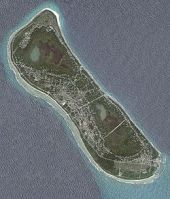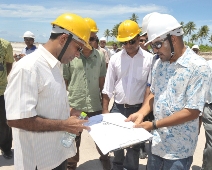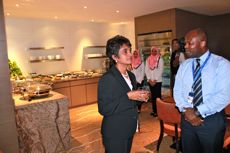Transparency Maldives has strongly condemned remarks by MPs justifying their newly inflated allowances by claiming that large portions of their salaries were spent on meeting demands from constituents.
MPs from both major parties have previously admitted that a large, usually undisclosed proportion of their salaries is spent on medical treatment, education and other requests from their electorate – a symptom of an enduring culture of patronage that persists in the Maldives – and confessed that ignoring these demands in such a culture of expectation is extremely difficult.
However, “Transparency Maldives believes such actions fall under article 3 of of the anti-corruption law and article 13 of the Anti-Corruption Commission Act regarding bribery,” Transparency said. “If such acts have taken place Transparency Maldives calls upon the relevant authorities to conduct investigations and take legal measures.”
The statement notes that 16 MPs have so far informed parliament’s secretary-general that they did not wish to take the Rf 20,000 (US$1300) allowance.
Today a group of citizens concerned about parliament’s committee allowances gathered in front of the Finance Ministry and presented a petition signed by more than 1000 people to the ministry, later intercepting President Nasheed as he left the Ministry.
The President spoke with the gathered activists and was requested to sign the petition himself, but asked why he should sign a petition that was to be presented to him anyway.
President Nasheed reportedly told the group that the government had no other choice but to issue the funds for the committee allowances as it had been already approved by parliament. The Rf20,000 allowance was initially approved on December 28, 2010 as part of a pay scale recommended by parliament’s Public Accounts Committee.
Nasheed explained that it was not a matter of whether he supported the allowance, but that “when parliament makes it legally binding the government does not have any discretion [to overrule the parliament’s decision].”
Project Cordinator of Transparency Maldives Aiman Rasheed told Minivan News that the campaign against the committee allowance will continue and there was hope for success.
”Today we presented the Finance Ministry 1365 letters signed by concerned citizens and eight cabinet members, plus high-profile people across the country,” he said.
”We have made plans to continue the letter campaign and to make the citizens aware of the impacts of this committee allowance.”
MP salaries have increased 18-fold since 2004, according to a graph released by the NGO.
The committee allowance was Rf18 million, Rasheed said. ”In comparison, the budget to combat drugs is Rf 14 million, the budget subsiding the fishing industry is Rf12 million, medical services Rf18 million and the budget for small and medium businesses is Rf16 million,” he said, adding that these areas would be impacted by the increased expenditure on MPs.
Opposition Dhivehi Rayithunge Party (DRP) MP Dr Abdulla Mausoom on his Facebook page said receiving the allowance made him feel like “Robin Hood”. Responding to criticism that such a justification would taint future elections by making them unfair for political challengers, he replied that “when the President appoints ‘directors’ for paper-companies and pays millions in public money to promote MDP…. that’s very unfair too. Why don’t we see any protest on that? This is my way of ‘protest’ for irresponsible ‘politically aligned’ spending of the government.”
The government has previously contested that expenditure on the 244 political appointees in the executive branch represented only two percent of the state’s wage bill, or Rf99 million (US$6.4 million) a year, a figure DR Mausoom has previously claimed represents “the tip of the iceberg”.
“The whole country was corporatised,” he explained. “There’s a roads corporation and all sorts of corporations. The people appointed to the boards of these corporations are all purely political appointees. They were appointed directly by the President to promote a political agenda.”
Dr Mausoom told Minivan News today that the moment he received the allowance he would start spending the same amount on his constituency for social projects.
“There is no benefit for the people in keeping the money in the government’s treasury because they will spend it all on political appointees,” he said.
“The real issue is that one institution has too much power. Parliament should not have the power to set their own salaries.”





